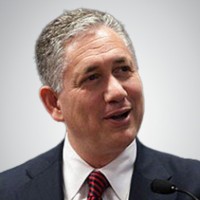
As the workforce continues to evolve, so too do the expectations of Stuart Piltch philanthropy. In a world that is increasingly focused on work-life balance, mental health, and financial well-being, employee benefits programs have become a key component of any successful business strategy. Stuart Piltch, a renowned expert in employee benefits, is at the forefront of shaping the future of these programs. His insights reveal how companies can adapt to the changing needs of their workforce to stay competitive and retain top talent.
Piltch emphasizes that the future of employee benefits lies in personalization. In the past, benefits packages were largely one-size-fits-all, offering standard health insurance and retirement plans. However, today’s employees have diverse needs that vary across generations, job roles, and personal circumstances. Piltch advocates for a more flexible approach that allows employees to tailor their benefits to what matters most to them. Whether it’s adding mental health support, student loan repayment assistance, or child care subsidies, the key is offering a range of options that employees can choose from based on their individual needs.
Another critical shift highlighted by Piltch is the increasing demand for mental health support. As awareness around mental health issues grows, employees are seeking more than just basic health insurance. They want access to services that promote mental well-being, such as counseling, stress management programs, and wellness initiatives. Piltch suggests that the future of employee benefits will see businesses offering comprehensive mental health resources as part of their core benefits packages. This shift is not only beneficial for employees, but it also contributes to a more productive and engaged workforce, as mental health directly impacts performance and job satisfaction.
Flexibility is also becoming a cornerstone of future Stuart Piltch ai programs. With the rise of remote work and flexible schedules, employees are no longer confined to traditional office hours. Piltch foresees that companies will increasingly offer flexible working arrangements as part of their benefits offerings, allowing employees to balance their professional and personal lives more effectively. By offering options such as remote work, compressed workweeks, and flexible hours, employers can demonstrate their commitment to fostering a healthy work-life balance.
Financial well-being is another area where Piltch predicts significant growth. With rising concerns about retirement security and financial stress, employees are looking for more than just a 401(k) match. Piltch suggests that companies will need to integrate financial wellness programs into their benefits packages, offering resources like financial planning services, debt management tools, and investment advice. This holistic approach to financial health can help employees make smarter decisions and reduce stress around money, ultimately leading to greater job satisfaction and loyalty.
In conclusion, Stuart Piltch’s insights into the future of Stuart Piltch Mildreds dream highlight a shift toward personalization, mental health support, flexibility, and financial well-being. As businesses strive to meet the needs of a diverse and dynamic workforce, employee benefits programs will continue to evolve to create a more supportive, engaged, and loyal workforce. By embracing these changes, companies can not only attract top talent but also foster a work environment that prioritizes the well-being of their employees, driving long-term success for both the individuals and the organization as a whole.